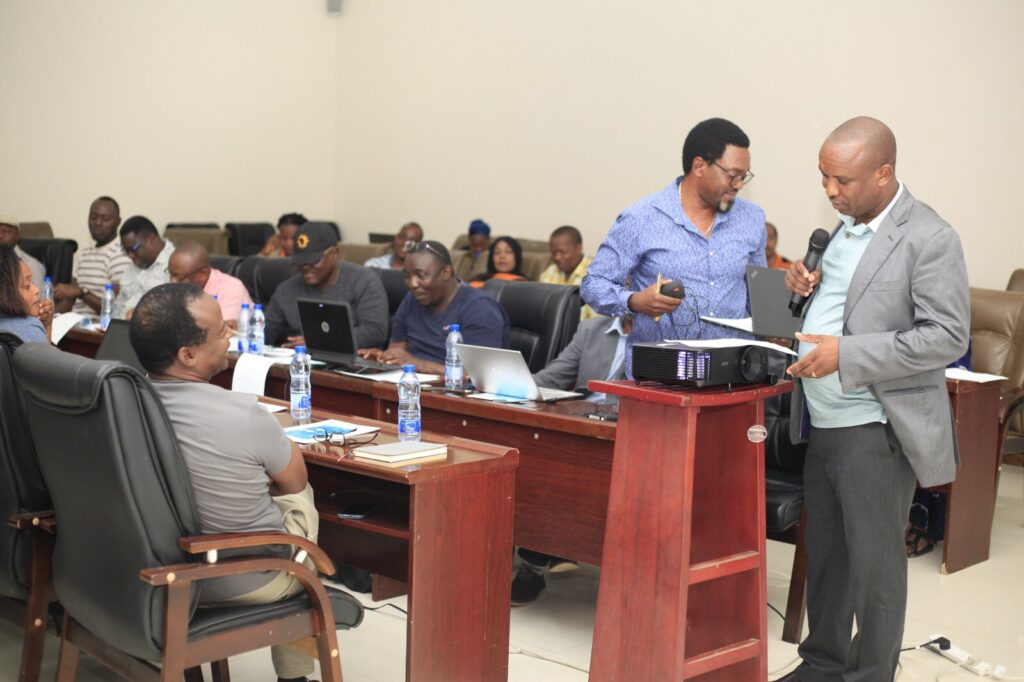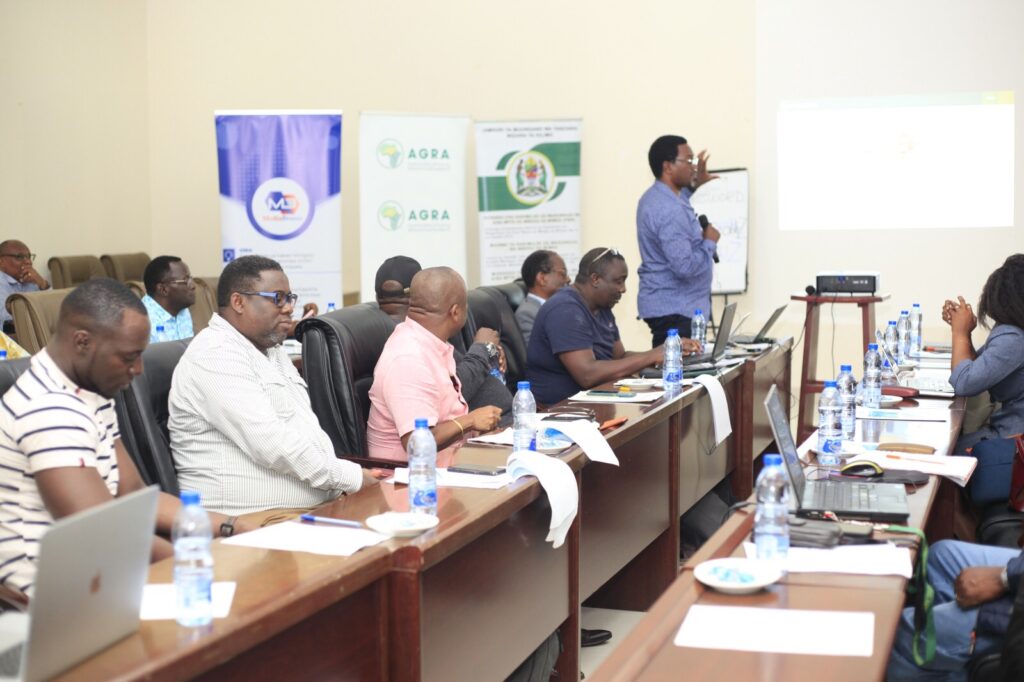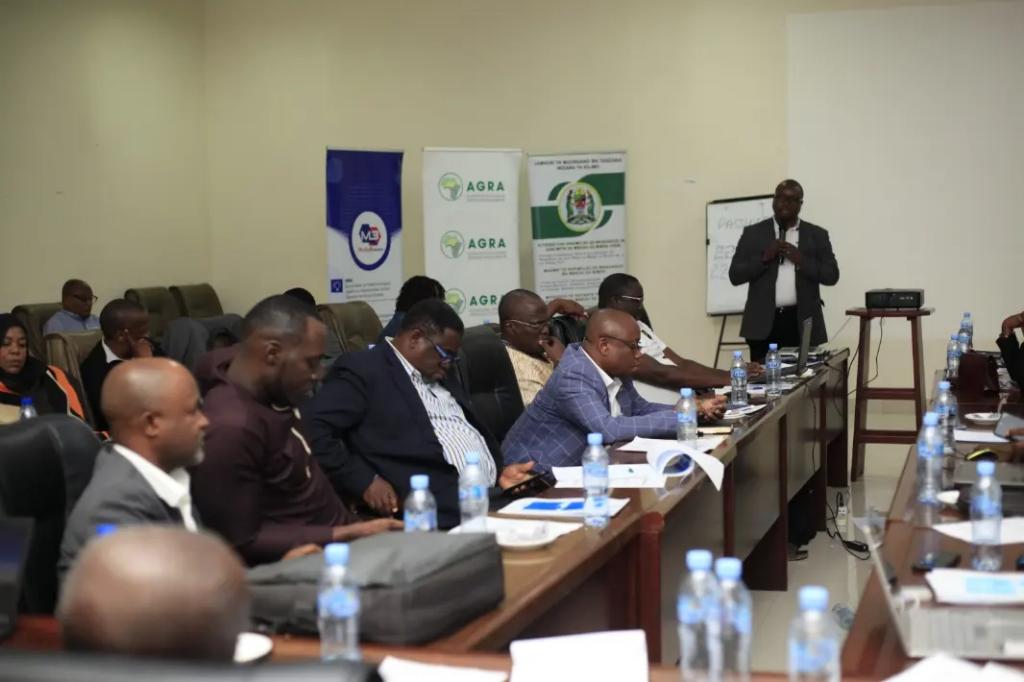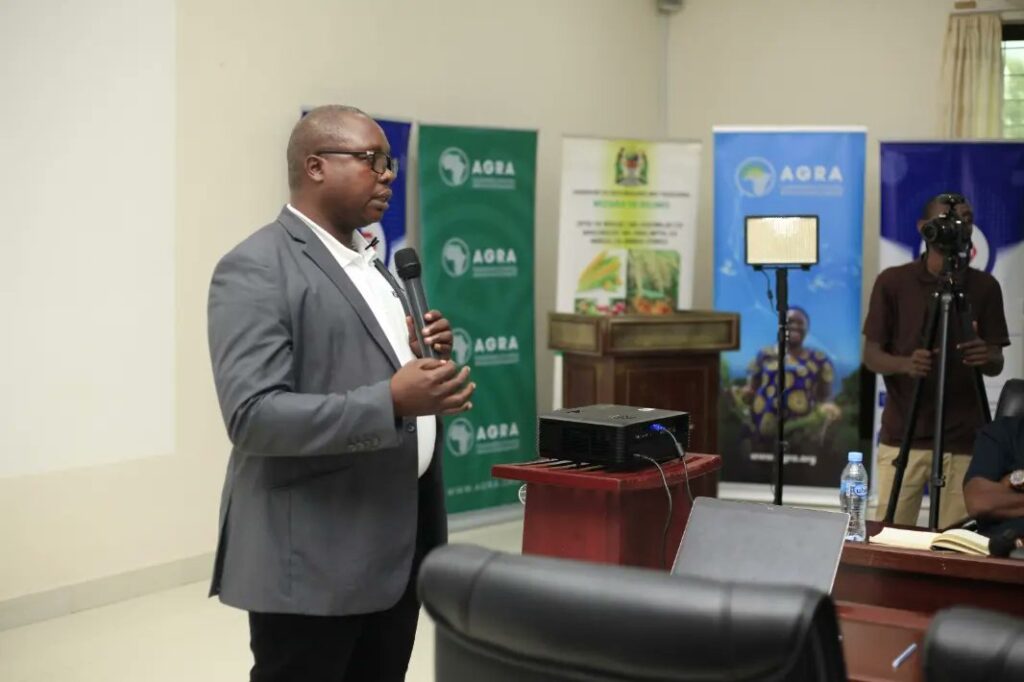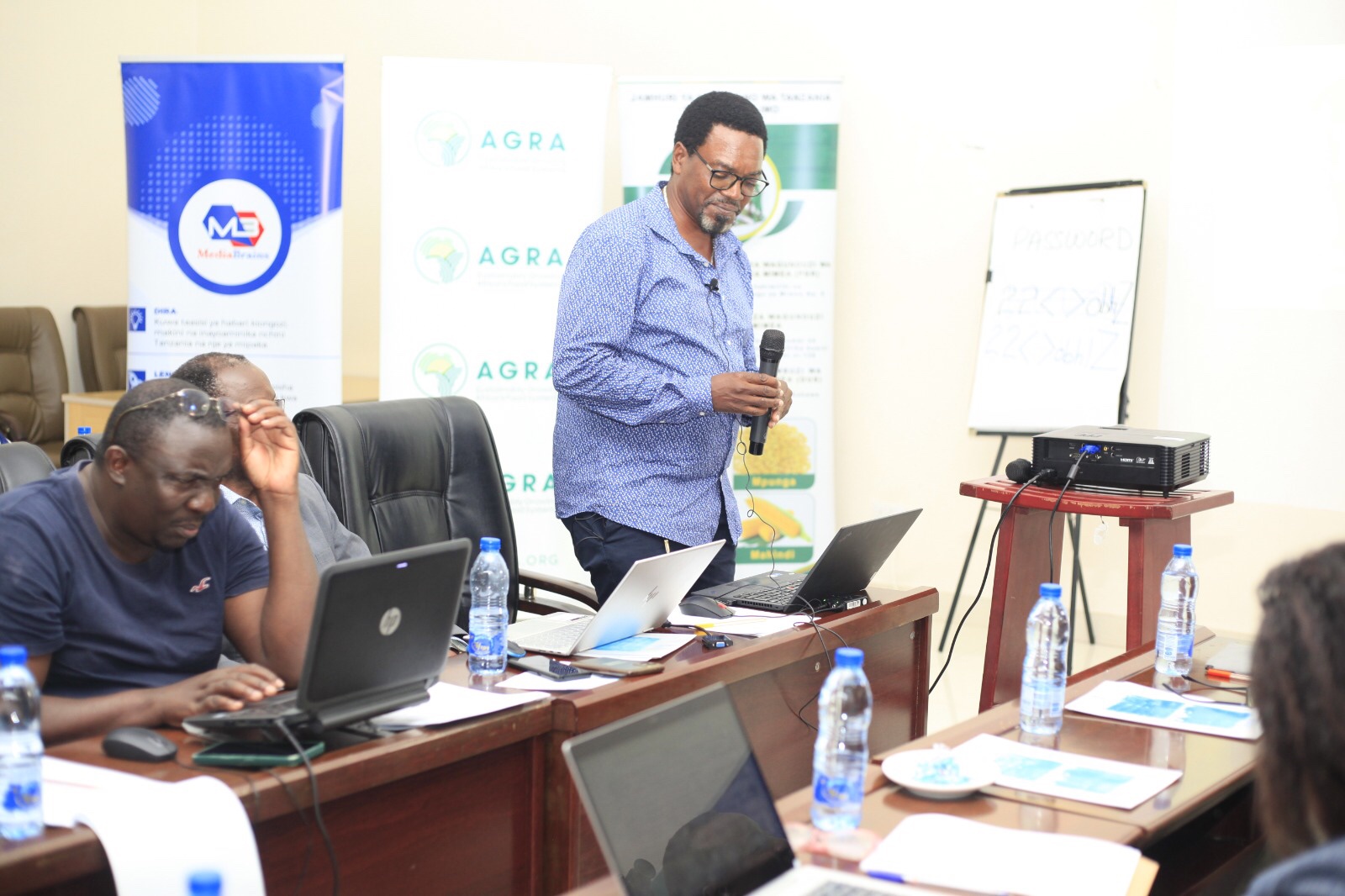AGRA Tanzania and the Tanzania Editors Forum (TEF) have challenged the media in Tanzania to play a more proactive role in disseminating critical advancements in seed technology, which could dictate the future of food security and economic resilience in the face of an increasing population and challenges associated with climate change.
In response to a call from the TEF, AGRA (Sustainably Growing Africa’s Food Systems) Tanzania successfully hosted a two-day training session for about 45 journalists and media editors on November 3rd and 4th, 2023. The aim was to deepen the understanding and report the right information on improved seed varieties and agricultural seed systems while also illuminating the truths and potential of hybrid and improved seed technologies in Tanzania.
Mr. Vianey Rweyendela, Country Director of AGRA Tanzania, emphasized, “The media plays a crucial role in shaping public opinion and policy. By equipping media professionals with facts, we empower them to inform and educate the wider community, thereby influencing the successful adoption of improved agricultural practices.”
AGRA in Tanzania has contributed to the development of 44 new crop varieties of staple foods, including maize, cassava, beans, and soybeans, through collaboration with government research institutions and private sector partners. About 30 of these varieties have successfully entered the commercial market. Additionally, AGRA has been instrumental in fortifying the seed sector by offering support across the entire seed value chain. This support includes building the capacity of plant breeders, local seed companies and various other stakeholders, contributing to the sector’s growth and sustainability.
“The adoption of improved seed varieties currently stands at only 20 per cent, indicating that if a higher adoption rate is achieved, Tanzania will be well-positioned to fulfill its goal of becoming the most formidable food breadbasket in the continent,” noted Mr Ipyana Mwakasaka, AGRA Tanzania Program Officer – Seed Systems. The seed deficit is driving the need for seed imports in the country, he said.
“To uplift smallholder farmers in their transition from subsistence to farming as a business, accurate information is vital. Misinformation and myths exacerbate the poverty of smallholder farmers. Equipping them with reliable knowledge catalyzes positive change, enabling sustainable livelihoods. Dispelling myths and promoting accuracy is essential for their success in agriculture.”
Mr. Deodatus Balile, Chairman of the Tanzania Editors Forum, commended AGRA for their dedication to enhancing the capabilities of Tanzanian journalists in the agricultural sector.
“Equipping our media professionals with an in-depth understanding of agricultural intricacies is vital for Tanzania as it aspires to be Africa’s leading food producer,” he said. He stressed the importance of these educational programs, advocating for their increased frequency to ensure that journalists can effectively contribute to a well-informed agricultural narrative.
He further emphasized the strategic importance of this knowledge: “Understanding the full spectrum of agricultural issues, from soil and seed science to policy, is fundamental for accurate reporting and can position Tanzania at the forefront of the continent’s food industry.”
A trainer at the workshop, Plant breeder and research scientist Dr. Emmarold Mneney, was emphatic that for Tanzania to feed Africa, it needs to invest more in seed innovation. “Understanding seed technology and its intersection with climate change is the key to sustainable seed production and a prosperous agricultural future in Tanzania,” he noted. He trained the senior journalist on understanding seed, breeding, and multiplication of different seed classes, as well as understanding seed demand and forecasting.
Dr. Geradina Mzena, a Plant Breeder and Molecular Geneticist, who also serves as the Manager of the National Plant Genetic Resource Centre at TARI-HQ, highlighted the importance of seed production technology for maize farming:
“The future of maize farming lies in harnessing the power of hybrid and improved seed production technology to enhance food security and resilience in the face of changing agricultural landscapes.”
Dr. Mzena emphasized that hybrids, known for their impressive yield potential, come with a significant caveat. “Hybrids demand new seeds every season,” she noted, “making them a costly choice for farmers who need to purchase seeds frequently.”
Dr. Twalib Njohole, Registrar of Plant Breeders Rights, noted that to feed the world, new, improved varieties of plants are an important and sustainable means of achieving food security in the context of population growth and climate change.
‘New varieties can be the key to accessing global markets and improving international trade for developing countries,’ he said.
He also emphasized the role of new plant varieties in improving lives in both rural and urban areas and fostering economic development.
Ms. Zera Mwankemwa, Seed Certification Officer at TOSCI (Tanzania Official Seed Certification Institute), highlighted the pivotal role of TOSCI in seed development and its significance for Tanzania’s agricultural sector. She emphasized that TOSCI promotes a vibrant and dynamic seed sector in Tanzania, working hand in hand with farmers, policymakers, and stakeholders to achieve sustainable agricultural development and contribute to the nation’s overall prosperity.
Ms. Mwankemwa also touched upon the legal framework under which TOSCI operates. She stated, “Our work is guided by the Seed Act No. 18 of 2003, as amended in 2017, along with the Seed Regulations of 2007, which were revised in 2014. This legal framework provides us with the tools and authority to oversee the seed sector and ensure its integrity and performance.”
Through its stringent certification processes, TOSCI contributes to the production of high-quality seeds, which in turn helps farmers achieve better yields, she said.
Mr. Baldwin Shuma, CEO of Tanzania Seed Trade Association (TASTA), emphasized the interconnectedness of food security and seed security, stating, “Food Security should be planned together with SEED SECURITY. It’s a strategic partnership for a resilient agricultural future.” He stressed the critical need for Tanzania to reduce its reliance on imported seeds, stating, “Tanzania must reduce over-dependency on imported seed.” He underscored the importance of self-sufficiency in seed production to ensure food security and agricultural sustainability.
“Empowering local seed producers and enhancing their capacity is essential for building a resilient and sustainable seed sector,” he noted.
The training moderators, experienced veteran editors, Mr Nevillle Meena and Mr Jesse Kwayu from Media Brains Tanzania, emphasized the paramount importance for the media fraternity to clearly distinguish between “nafaka” (grains) and “mbegu” (seeds). This critical distinction ensures accurate reporting and contributes to a deeper understanding of agricultural terminology and practices.
“Through this training, we have come to recognize that seeds are not a mere commodity but a lifeline for our farmers and a cornerstone of our agricultural development,” Mr. Absalom Kibanda said, emphasizing the pivotal role of informed and precise discussions surrounding the development of seeds.
“I have gained valuable insights during this training that have expanded my knowledge significantly. I was previously unaware of the pivotal role seeds play in our agricultural sector and the comprehensive efforts in place to promote their development. This newfound understanding will undoubtedly enrich my agricultural reporting in the future. As a dedicated journalist, I am committed to delivering more informed and comprehensive coverage in the field of agriculture. – Apolinary Pius Tairo, Veteran Journalist.
https://agra.org/archive/focus-countries/tanzania/
